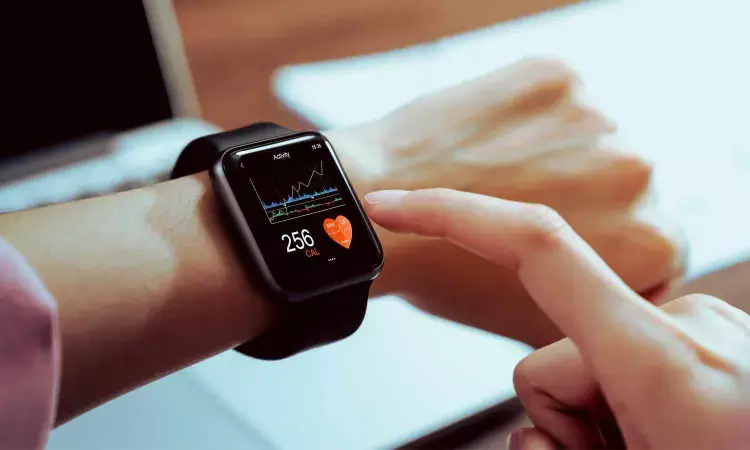- Home
- Medical news & Guidelines
- Anesthesiology
- Cardiology and CTVS
- Critical Care
- Dentistry
- Dermatology
- Diabetes and Endocrinology
- ENT
- Gastroenterology
- Medicine
- Nephrology
- Neurology
- Obstretics-Gynaecology
- Oncology
- Ophthalmology
- Orthopaedics
- Pediatrics-Neonatology
- Psychiatry
- Pulmonology
- Radiology
- Surgery
- Urology
- Laboratory Medicine
- Diet
- Nursing
- Paramedical
- Physiotherapy
- Health news
- Fact Check
- Bone Health Fact Check
- Brain Health Fact Check
- Cancer Related Fact Check
- Child Care Fact Check
- Dental and oral health fact check
- Diabetes and metabolic health fact check
- Diet and Nutrition Fact Check
- Eye and ENT Care Fact Check
- Fitness fact check
- Gut health fact check
- Heart health fact check
- Kidney health fact check
- Medical education fact check
- Men's health fact check
- Respiratory fact check
- Skin and hair care fact check
- Vaccine and Immunization fact check
- Women's health fact check
- AYUSH
- State News
- Andaman and Nicobar Islands
- Andhra Pradesh
- Arunachal Pradesh
- Assam
- Bihar
- Chandigarh
- Chattisgarh
- Dadra and Nagar Haveli
- Daman and Diu
- Delhi
- Goa
- Gujarat
- Haryana
- Himachal Pradesh
- Jammu & Kashmir
- Jharkhand
- Karnataka
- Kerala
- Ladakh
- Lakshadweep
- Madhya Pradesh
- Maharashtra
- Manipur
- Meghalaya
- Mizoram
- Nagaland
- Odisha
- Puducherry
- Punjab
- Rajasthan
- Sikkim
- Tamil Nadu
- Telangana
- Tripura
- Uttar Pradesh
- Uttrakhand
- West Bengal
- Medical Education
- Industry
Smartwatches may help control diabetes through exercise: Study

Wearable mobile health technology could help people with Type 2 Diabetes (T2D) to stick to exercise regimes that help them to keep the condition under control, a new study reveals.
Researchers studied the behaviour of recently-diagnosed T2D patients in Canada and the UK as they followed a home-based physical activity programme – some of whom wore a smartwatch paired with a health app on their smartphone.
They discovered that MOTIVATE-T2D participants were more likely to start and maintain purposeful exercise at if they had the support of wearable technology- the study successfully recruited 125 participants with an 82% retention rate after 12 months.
Publishing their findings in BMJ Open today (27 Mar), an international group of researchers reveal a range of potential clinical benefits among participants including improvements in blood sugar levels and systolic blood pressure.
Co-author Dr Katie Hesketh, from the University of Birmingham, commented: “Our findings support the feasibility of the MOTIVATE-T2D intervention – paving the way for a full-scale randomised controlled trial to further investigate its clinical and cost-effectiveness.
"We found that using biometrics from wearable technologies offered great promise for encouraging people with newly diagnosed T2D to maintain a home-delivered, personalised exercise programme with all the associated health benefits.”
Researchers found that, as well as the encouraging data for blood sugar and systolic blood pressure, the programme could help to lower cholesterol and improve quality of life.
The programme saw participants gradually increasing purposeful exercise of moderate-to-vigorous intensity – aiming for a target of 150 minutes per week by the end of 6 months and supported by an exercise specialist-led behavioural counselling service delivered virtually.
MOTIVATE-T2D used biofeedback and data sharing to support the development of personalised physical activity programmes. Wearable technologies included a smartwatch, featuring a 3D accelerometer and optical heart rate monitor, synced with an online coaching platform for the exercise specialist and web/smartphone app for participants.
“The programme offered a variety of workouts, including cardio and strength training, that could be done without the need for a gym,” added Dr Hesketh. "Its goal is to make exercise a sustainable part of daily life for people with Type 2 Diabetes, ultimately improving their physical and mental health.”
The feasibility trial recruited participants aged 40-75 years, diagnosed with T2D within the previous 5-24 months and managing their condition through lifestyle modification alone or Metformin.
Reference:
Hesketh K, Low J, Andrews R, et alMobile Health Biometrics to Enhance Exercise and Physical Activity Adherence in Type 2 Diabetes (MOTIVATE-T2D): a decentralised feasibility randomised controlled trial delivered across the UK and CanadaBMJ Open 2025;15:e092260. doi: 10.1136/bmjopen-2024-092260
Dr Kamal Kant Kohli-MBBS, DTCD- a chest specialist with more than 30 years of practice and a flair for writing clinical articles, Dr Kamal Kant Kohli joined Medical Dialogues as a Chief Editor of Medical News. Besides writing articles, as an editor, he proofreads and verifies all the medical content published on Medical Dialogues including those coming from journals, studies,medical conferences,guidelines etc. Email: drkohli@medicaldialogues.in. Contact no. 011-43720751


